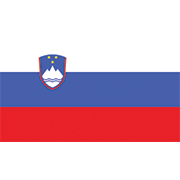Fiscal subject related
G2G system allows external systems to access certain data managed by the Tax Authority of the Republic of Slovenia. The G2G system provides the client with the following information (metadata) about the service:
- Scheme of an XML document (requirements) for the service execution.
- Xslt transformation to display the request. With this transformation, the client can display an XML request to the user to perform the service in HTML format. Published transformations do not change and are therefore also suitable for the digital signature of the request.
- Xslt transformation to display the response. As detailed as the G2G request, it also offers a transformation to display the answer. These transformations also do not change and are suitable for the digital signature of documents.
- Definition of the user interfaces for performing the service. The definition allows the generic creation of input masks to trigger the service. Each client can decide for themselves whether to use this definition or make their own user interface.
- Web address (URL) to the document with a detailed description of the service.
Other news from Slovenia
Slovenian Tax Authority Updated FAQs on VAT Recordkeeping and Reporting Requirements
 Slovenia
Author: Ivana Picajkić
Slovenia
Author: Ivana Picajkić
On July 23, 2025, Slovenia’s Financial Administration (FURS) published updated VAT FAQs clarifying key compliance issues such as invoice corrections, reporting obligations, and recordkeeping formats. Key updates include procedures for correcting invoices with incorrect VAT rates, exclusion of nontaxable domestic supplies from VAT records, and new rules for reporting invoices issued to certain non-taxable legal entities. Read more
Subscribe to get access to the latest news, documents, webinars and educations.
Already subscriber? Login


Slovenia: New Version of miniBlagajna Mobile App Released
 Slovenia
Author: Ivana Picajkić
Slovenia
Author: Ivana Picajkić
Slovenia’s Financial Administration has released version 2.7 of the miniBlagajna mobile app to fix a crash issue related to landscape mode, urging users to update for stable performance. Read more
Subscribe to get access to the latest news, documents, webinars and educations.
Already subscriber? Login


Reminder: Slovenia’s e-Invoicing Law Updates
 Slovenia
Author: Ivana Picajkić
Slovenia
Author: Ivana Picajkić
Slovenia’s updated e-invoicing law postpones the mandatory B2B implementation to January 1, 2027, removes the previous 8-day reporting requirement to FURS, and introduces stricter standards for service providers, including mandatory ISO/IEC 27001 certification. The draft also officially permits Peppol use, defines accepted formats, and outlines fines for non-compliance, while B2C invoicing remains... Read more



Slovenia: Issues with the miniBlagajna Mobile App
 Slovenia
Author: Ivana Picajkić
Slovenia
Author: Ivana Picajkić
Slovenia’s Financial Administration has reported a technical issue with version 2.5 of the miniBlagajna mobile app on some Android devices, advising affected users to switch to the web version and clear app data. Despite the glitch, installing version 2.5 remains mandatory for compliance. The Slovenian Financial Administration has announced a technical issue affecting some users of the new miniBla... Read more



Reminder: New VAT Reporting Rules in Slovenia Starting July 2025
 Slovenia
Author: Ivana Picajkić
Slovenia
Author: Ivana Picajkić
Starting July 2025, all VAT-registered businesses in Slovenia must electronically submit records of VAT charged and deducted to FURS, with deadlines aligned to their VAT return periods. Small businesses can use tools like MiniBlagajna for easier compliance, and early submission enables FURS to prepare draft VAT returns automatically. From 1 July 2025, all VAT-registered businesses in Slovenia must... Read more



VAT in Slovenia 2025
 Slovenia
Author: Ivana Picajkić
Slovenia
Author: Ivana Picajkić
From 2025, Slovenia will raise the VAT registration threshold to €60,000 and require monthly VAT ledger reports, with carbonated drinks now taxed at the standard 22% rate. The country is also preparing for mandatory e-invoicing in line with EU ViDA reforms, making early system updates essential for businesses. VAT is an indirect tax levied on most goods and services in Slovenia. It represents... Read more



New Changes to Slovenian VAT-O (DDV-O) Form
 Slovenia
Author: Ivana Picajkić
Slovenia
Author: Ivana Picajkić
Slovenia has updated its VAT-O (DDV-O) form as of May 29, 2025, adding three optional fields to improve communication and streamline the pre-filled return process. The new fields include an ID of Records for use when FURS pre-fills the return, and a contact section for the preparer’s name and phone number. Read more
Subscribe to get access to the latest news, documents, webinars and educations.
Already subscriber? Login

